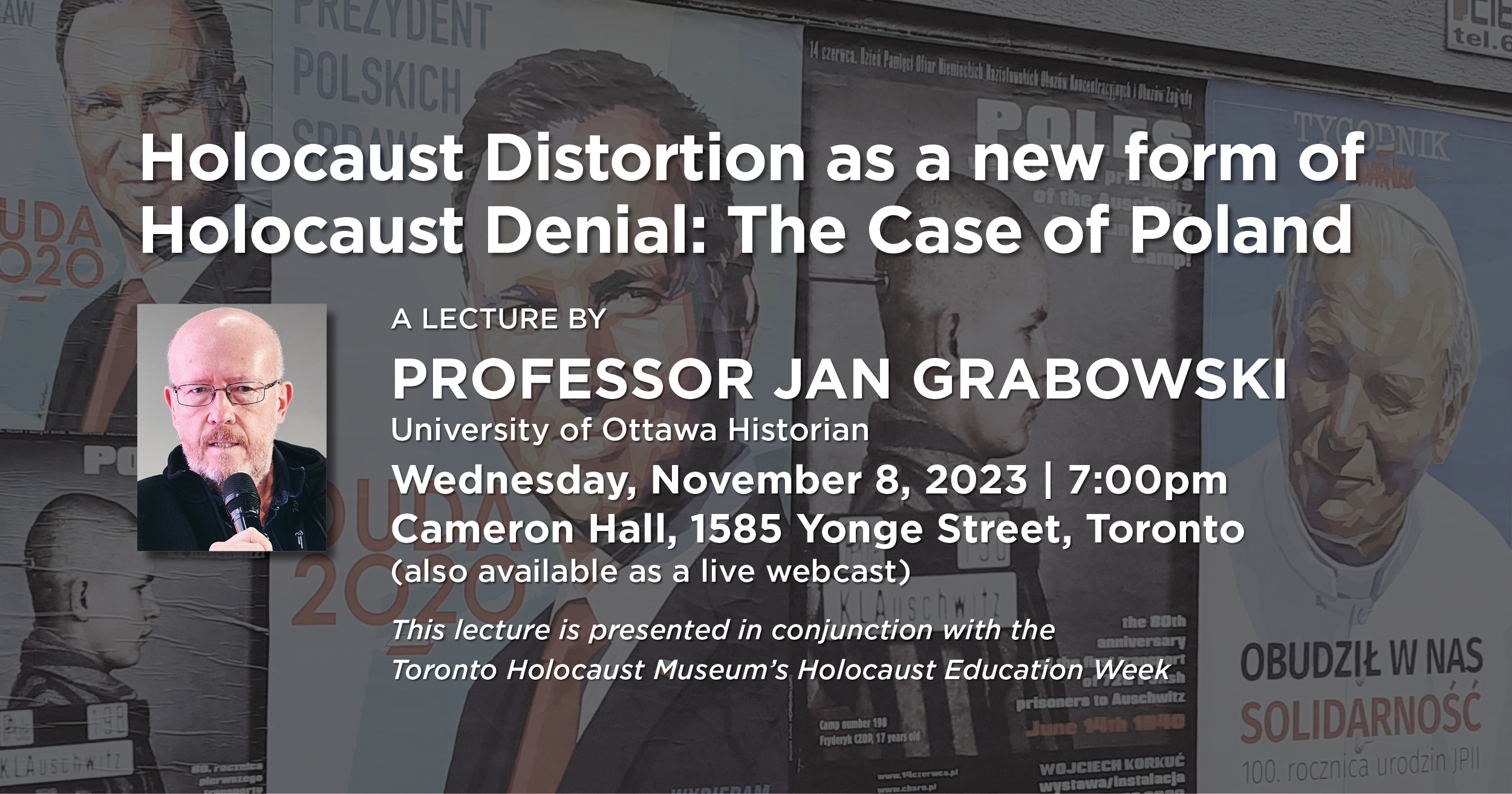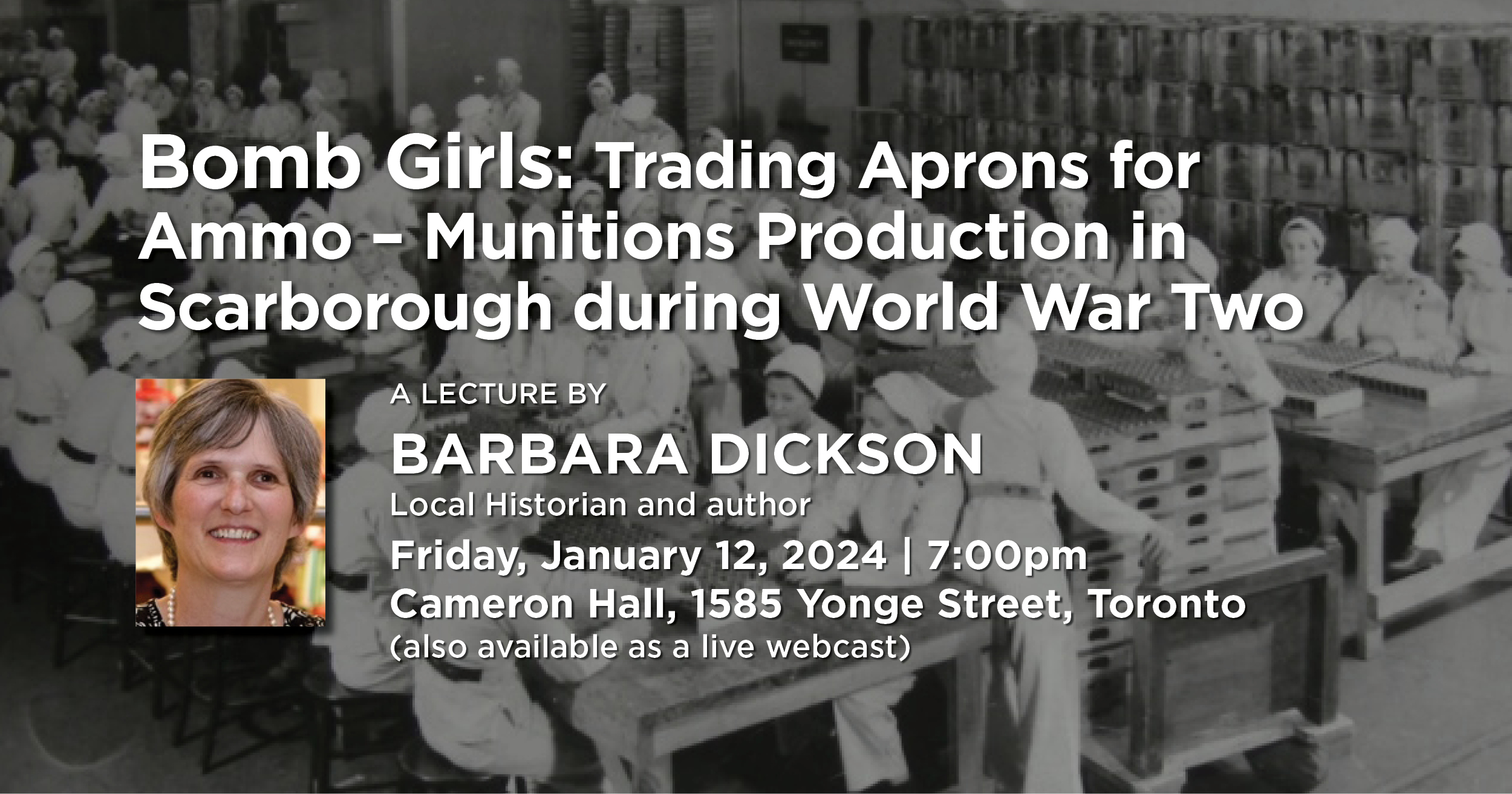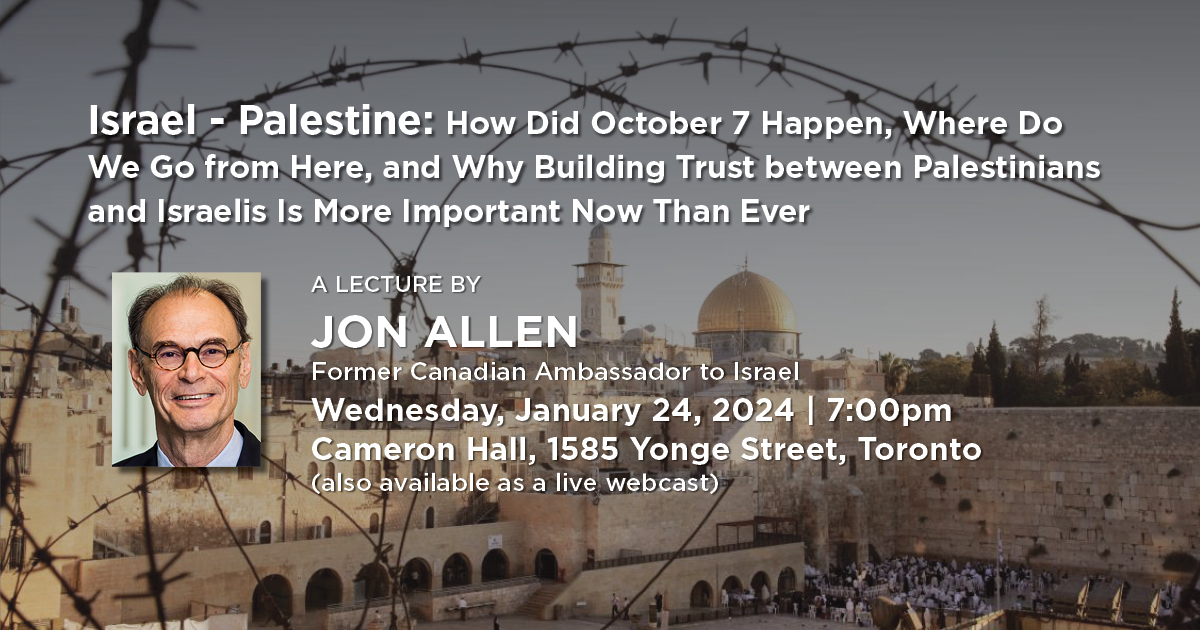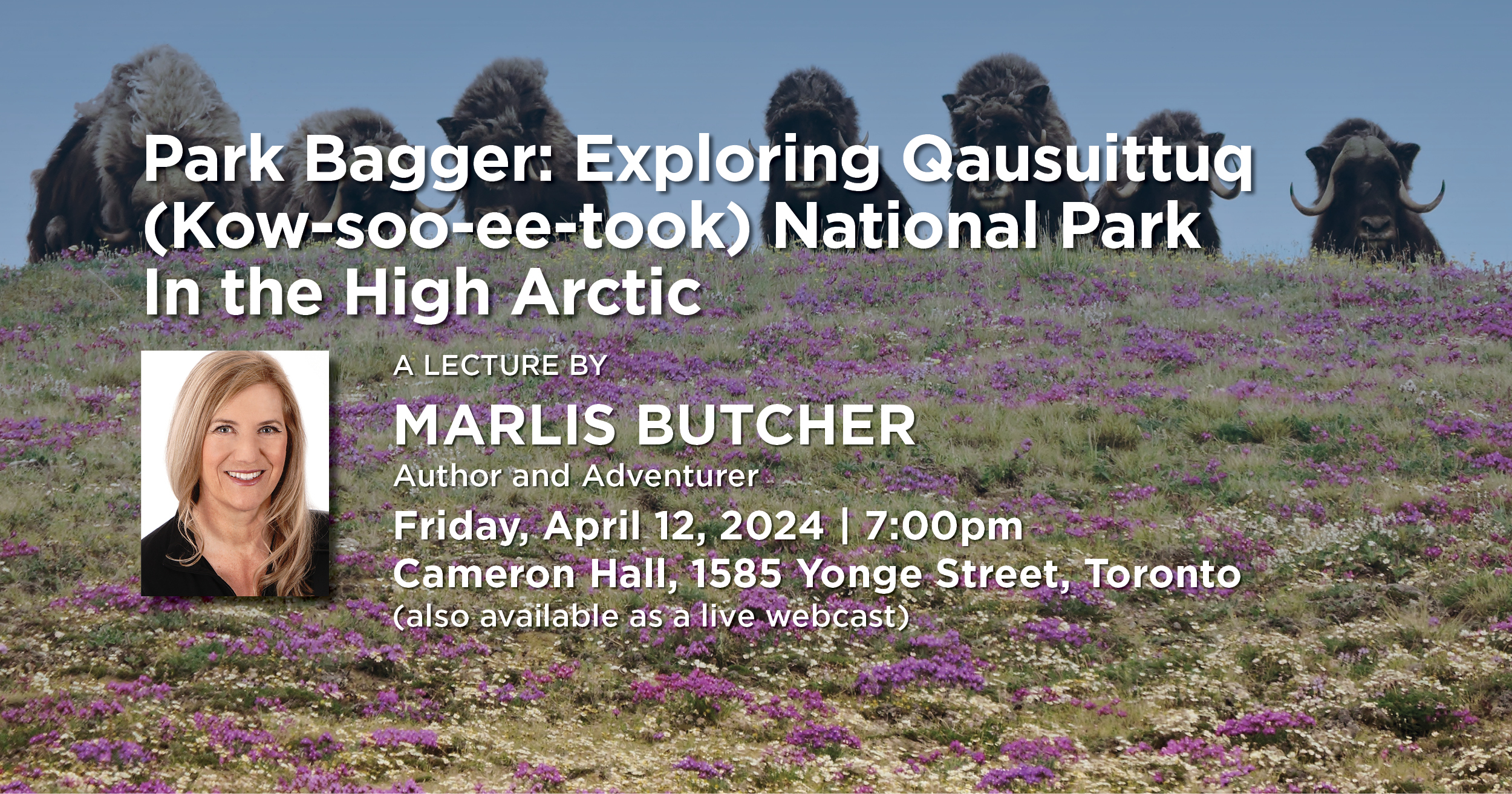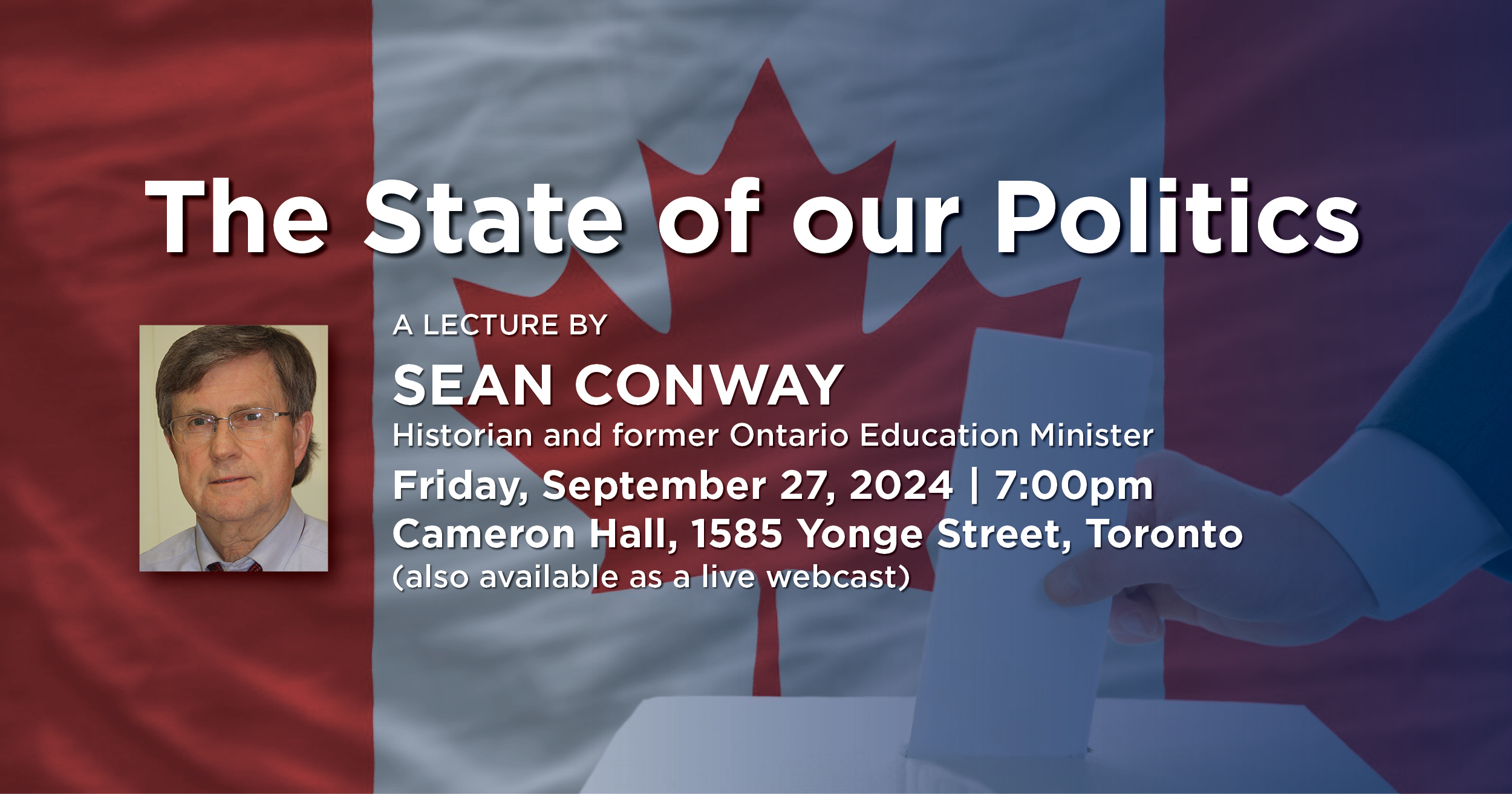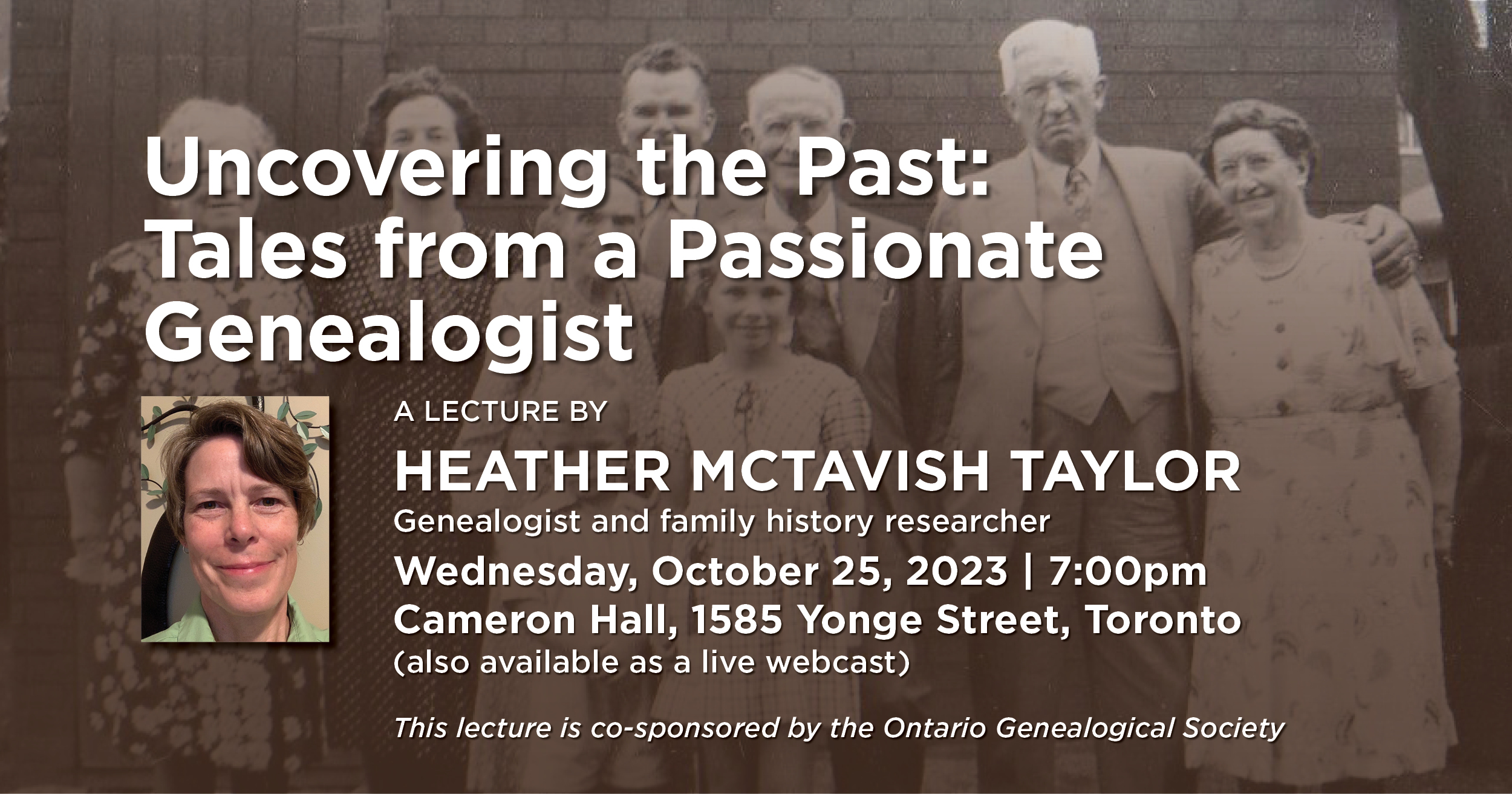
Uncovering the Past: Tales from a Passionate Genealogist
Cameron Hall 1585 Yonge Street, TorontoWhen she a young child, Heather’s mother told her that Mark Twain was a great-uncle. It seemed like a really cool thing to tell people, but other than that, it held little meaning for her at the time. Fast forward forty years: one night while Heather found herself between jobs and with time on her hands a TV ad for Ancestry reminded her of Mark Twain and she decided to see if there was any truth to the family story. Only later did she realise that this was the moment her passion for genealogy was born. In this talk Heather will share stories from her own work – involving archival research, personal interviews and the latest in genetic DNA technology – to help us understand why the field of genealogy has grown exponentially in recent years and why it has become not only Heather’s passion but also her second career. Perhaps she will also inspire you to begin your journey tracing your own family history.


